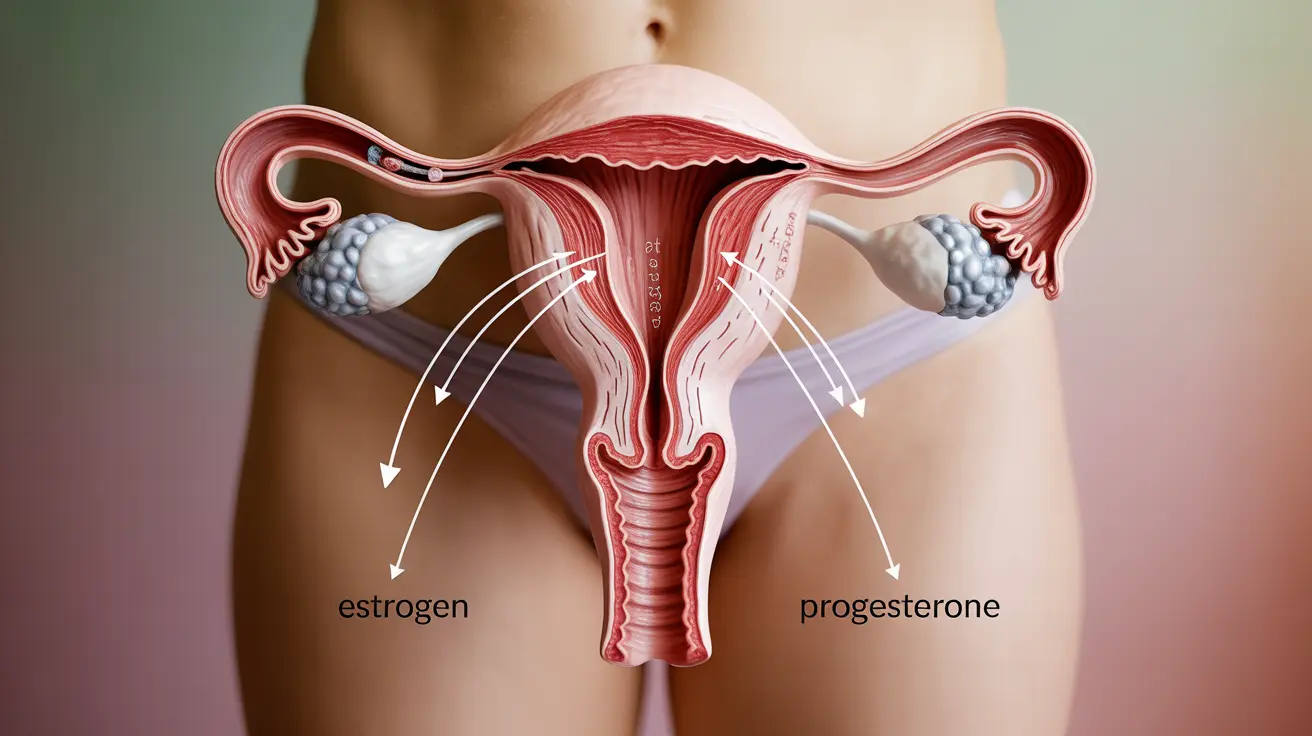Experiencing uterus pain during the first week of pregnancy can be concerning for many women, especially if this is their first pregnancy. While some discomfort is common during early pregnancy, understanding what's normal and what might signal a problem is crucial for your peace of mind and well-being.
This comprehensive guide will help you understand the causes of uterus pain in early pregnancy, recognize normal symptoms, and know when to seek medical attention.
Common Causes of Early Pregnancy Uterus Pain
During the first week of pregnancy, several normal physiological changes can cause uterine discomfort:
Implantation Process
When a fertilized egg attaches to the uterine wall, you might experience mild cramping and discomfort. This typically occurs 6-12 days after conception and is one of the earliest signs of pregnancy.
Hormonal Changes
The rapid increase in pregnancy hormones, particularly progesterone, can cause uterine sensitivity and mild cramping. These hormonal fluctuations are essential for supporting early pregnancy but may result in temporary discomfort.
Uterine Expansion
Even in the earliest days, your uterus begins preparing for pregnancy. This can cause stretching sensations and mild cramping as the uterine tissue responds to hormonal changes.
Distinguishing Normal from Concerning Pain
Normal Pain Characteristics
Typical early pregnancy uterus pain usually:
- Feels like mild menstrual cramps
- Comes and goes intermittently
- Stays relatively mild in intensity
- Isn't accompanied by heavy bleeding
Warning Signs
Seek immediate medical attention if you experience:
- Severe, persistent pain
- Sharp, stabbing pains
- Heavy bleeding alongside cramping
- One-sided abdominal pain
- Dizziness or fainting
Managing Early Pregnancy Uterus Pain
Safe Relief Methods
To help manage normal early pregnancy discomfort, you can try:
- Gentle stretching exercises
- Warm (not hot) compress application
- Rest and proper hydration
- Deep breathing techniques
- Light walking
When to Contact Your Healthcare Provider
While some uterus pain is normal in early pregnancy, certain situations warrant medical attention:
- Severe or persistent cramping
- Pain accompanied by bleeding
- Fever along with abdominal pain
- Difficulty urinating
- Shoulder or neck pain
Frequently Asked Questions
What causes uterus pain during the first week of early pregnancy?
Uterus pain in the first week of pregnancy is typically caused by implantation, hormonal changes, and early uterine expansion. These natural processes can result in mild cramping and discomfort as your body adapts to pregnancy.
How can I tell if early pregnancy uterus pain is normal or a sign of a problem?
Normal early pregnancy pain is usually mild, intermittent, and similar to menstrual cramps. Warning signs include severe pain, heavy bleeding, one-sided pain, or pain accompanied by dizziness or fever.
What does implantation pain feel like and when does it occur?
Implantation pain typically feels like mild cramping or twinges and occurs 6-12 days after conception. It's usually less intense than menstrual cramps and may be accompanied by light spotting.
When should I see a doctor for uterus pain in early pregnancy?
Seek medical attention if you experience severe pain, heavy bleeding, sharp pains, one-sided pain, fever, or if the pain interferes with your daily activities.
Can hormonal changes in early pregnancy cause uterus cramping or discomfort?
Yes, hormonal changes, particularly the increase in progesterone, can cause uterine cramping and discomfort in early pregnancy. This is a normal response as your body adapts to pregnancy.
Remember that while some discomfort is normal during early pregnancy, it's always better to err on the side of caution and contact your healthcare provider if you're concerned about your symptoms.




